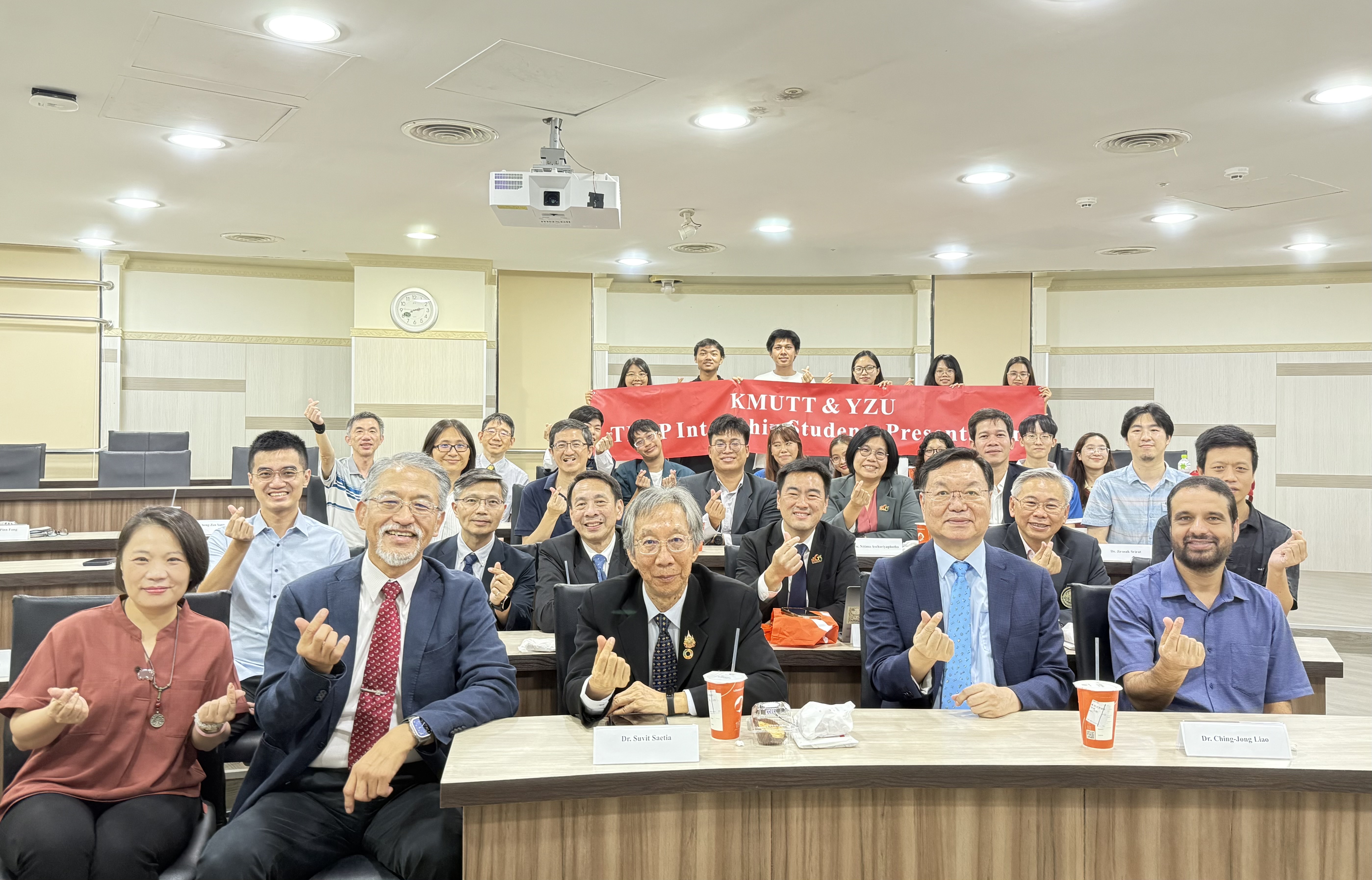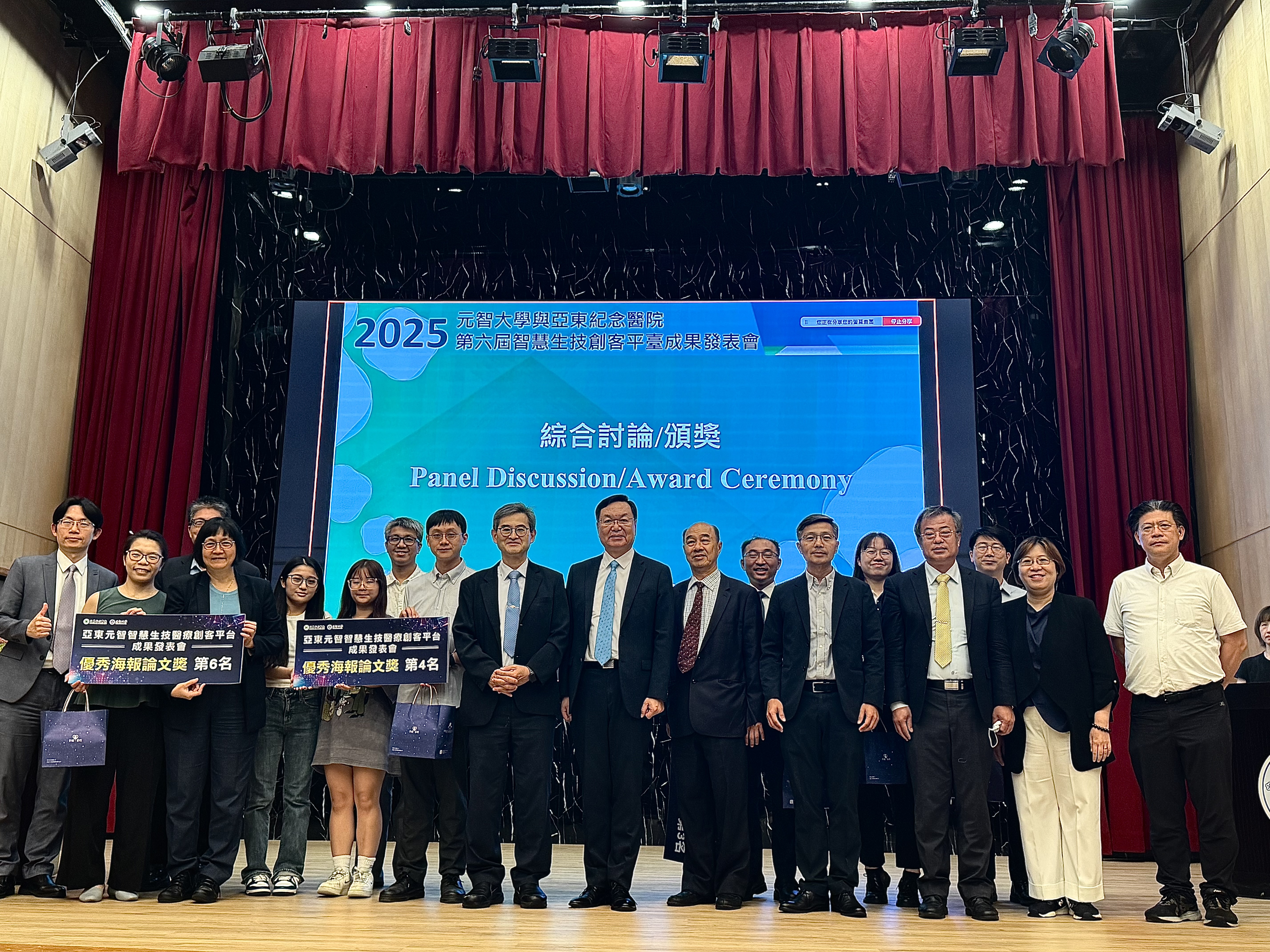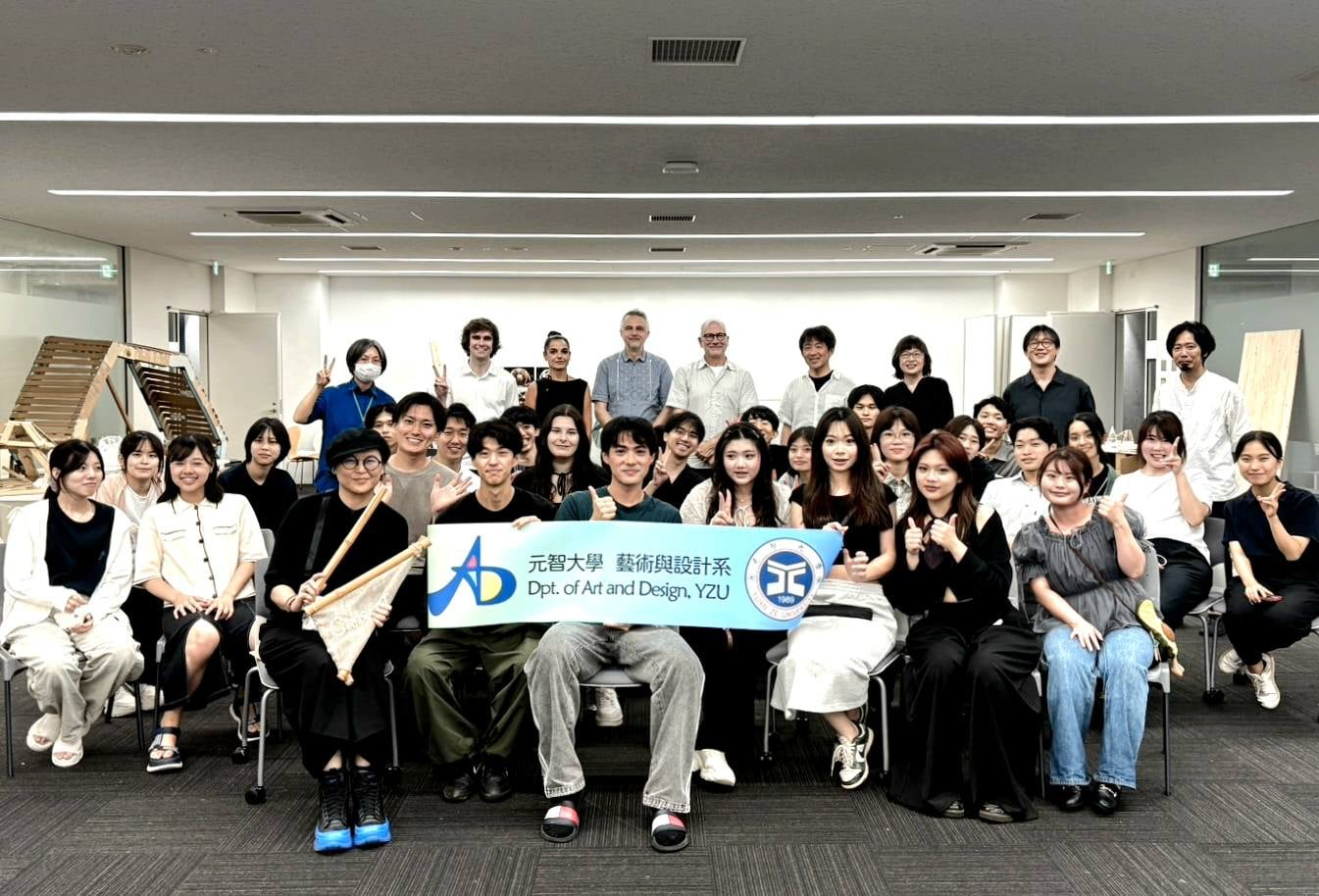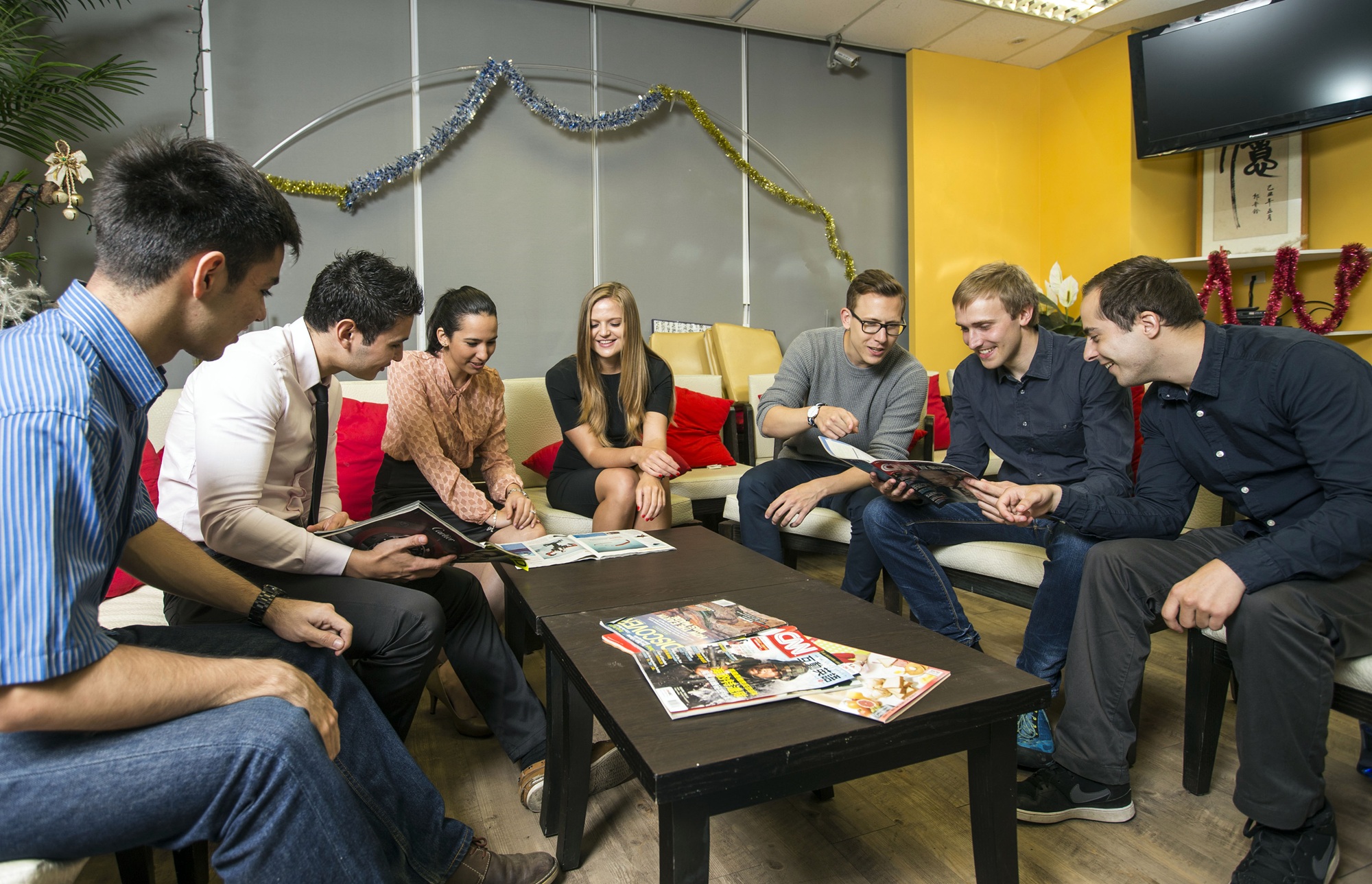To enhance international academic cooperation and provide cross-border internship experiences, Yuan Ze University’s College of Engineering held an internship presentation session for students from King Mongkut’s University of Technology Thonburi (KMUTT) in Thailand.
A total of 13 KMUTT students participated in the program, with internships spanning the College of Engineering, College of Informatics, and College of Electrical and Communication Engineering, showcasing the outcomes of interdisciplinary learning and hands-on experience.
The organizers noted that the event was graced by the presence of Assoc. Prof. Dr. Suvit Saetia, President of KMUTT, led a delegation of six high-level university executives and department heads. The delegation included the Vice President for International Affairs, the President’s Assistant for International Affairs, the Vice President of the Ratchaburi Campus, and several academic and educational development staff, demonstrating KMUTT’s strong commitment to bilateral collaboration.
During his speech at the event, Ching-Jung Liao, President of Yuan Ze University, stated that KMUTT had been one of Yuan Ze’s most important international partners. He expressed great pride in the fruitful results achieved over the years in student internships, academic exchange, and joint research, and looked forward to developing even more meaningful and multifaceted cooperation in the future.
The 13 KMUTT students arrived in Taiwan in June and undertook a two-month summer internship. During the program, they were guided directly by faculty members from various colleges and departments at Yuan Ze University. The students engaged deeply in multiple research projects and laboratory work across diverse fields, including artificial intelligence, robotic control, seismic data analysis, intelligent transportation, and energy technology.
At the presentation event, the students delivered English presentations to showcase their research projects and personal reflections. Their performance demonstrated not only strong technical and academic capabilities but also the effectiveness of cross-cultural communication and academic exchange. The presentations received unanimous praise from the attending faculty and staff.
 English
English  正體中文
正體中文 



